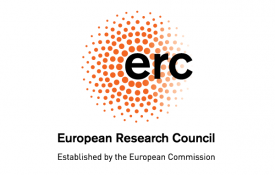-

ERC Magazine
Stay up to date with the latest news from the European Research Council (ERC) by reading the ERC Magazine.
-
Start Fresh: 6 Tips For Emotional Well-Being In 2020
As a college student, Katy Milkman played tennis and loved going to the gym. But when she started graduate school, her exercise routine started to flunk. ... What got her back to regular workouts was something she calls "temptation bundling." She resolved to indulge in her love of wizard-lit only while at the gym, by listening to audiobooks with earbuds. Milkman, now a professor at the Wharton School of Business who specializes in human decision-making, says that when it comes to making a behavioral change, the trick is to pair the thing you dread with something you love.
-
The Fourth Commandment Of Highly Effective Leadership: Counter Your Negative Thoughts
Professor Martin Seligman is known as the father of positive psychology. In his popular TED Talk, he argues that most psychologists are fixated on finding what’s “wrong” with people, while he insists on finding what’s “right." His theory, and the theories of so many positive psychologists, are based on a study he conducted with a large group of children who were at risk of depression. In his book, Learned Optimism, Seligman shares how he taught the children to control their negative or pessimistic thinking using Dr. Aaron Beck’s cognitive behavior therapy (CBT) model.
-
Spoiler Alert! The Psychology Of Surprise Endings
Writers and filmmakers hoping to hoodwink their fans with plot twists have long known what cognitive scientists know: All of us have blind spots in the way we assess the world. We get distracted. We forget how we know things. We see patterns that aren't there. Because these blind spots are wired into the brain, they act in ways that are predictable ... In recent years, some scientists have begun to ask, can stories serve as a kind of brain scan? If a plot twist works by exploiting our biases and mental shortcuts, can observing the mechanics of a good story reveal something important about the contours of the mind?
-

NIH Grants for Studying Emotional Well-Being
The National Institutes of Health (NIH) has announced new grant funding for research networks focusing on emotional well-being. These networks should focus on positive health outcomes across the lifespan, such as how to prevent and treat conditions of mental health symptoms, burnout, and stress in at-risk populations.
-
Creatures Of Habit: How Habits Shape Who We Are — And Who We Become
At the beginning of the year, many of us make resolutions for the months to come. We vow to work out more, procrastinate less, or save more money. Though some people stick with these aspirations, many of us fall short. How do we actually develop good habits and maintain them? What about breaking bad ones? Wendy Wood, a psychology professor at the University of Southern California, has some insight on this. She's been trying to understand how habits work for the past 30 years. According to Wendy, habits are mental associations.

